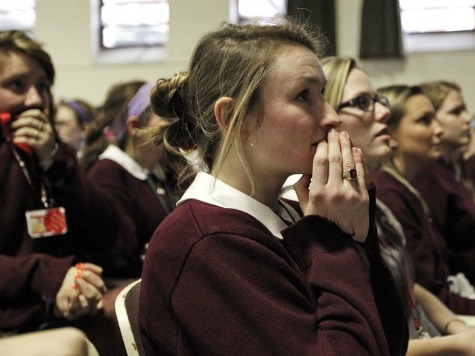A landmark report by an educational charity has blown many long-held beliefs of the teaching profession about the effectiveness of “popular” modern practices out of the water, and has suggested more traditional methods are far more effective.
The report, What Makes Great Teaching, commissioned by the Sutton Trust and Durham University takes aim at “inefficient” and “ineffective” fashionable teaching methods such as “child centred learning” and “discovery learning”, which it claims is retarding the progress of young people in schools. It praises traditional, efficient methods and the establishment of clear rules for classroom behaviour, and anticipates the potential anger among the teaching community the report could generate.
While individual teachers may believe new methods of teaching are working for their classes, the report scorns the largely anecdotal evidence used to justify them. The Independent newspaper reports the comments of professor Coe, who led the research: “It is surprisingly difficult for anyone watching a teacher to judge how effectively students are learning. We all think we can do it, but the research evidence shows that we can’t. Anyone who wants to judge the quality of teaching needs to be very cautious”.
The report also rejected the modern notion that students needed regular praise and boosts to their self-worth to succeed. In reality, it is claimed, constant praise encourages complacency among learners. Indicating to a student that more is expected of them through disapproval of performance instead produces the desired effect: “For low-attaining pupils, praise… meant to be encouraging and protective can actually convey a message of low expectations.
“The evidence shows children whose failure generates sympathy are more likely to attribute it to a lack of ability than those who are presented with anger”.
Ultimately, the report concludes that the most important element that makes a good teacher is not their use of fashionable teaching methods, but “strong knowledge and understanding of their subject” which shows “strong evidence of impact on student outcomes”.
The least important aspects that contribute to good teaching are “teacher beliefs”, which includes their knowledge of teaching theory and “conceptual models”, and “professional beliefs” which includes “reflecting on and developing professional practice”. In comparison to teacher knowledge, these practices only show “some evidence” of improving students.
The findings appear to vindicate the efforts of former Education Secretary Michael Gove to reform the UK’s schools system. In September 2013, he said modern methods of teaching were contributing to the “sidelining of the teacher from the activity of learning” and that “theorists have consistently argued for ways of organising classrooms and classroom activity which reduce the teacher’s central role in education”.
Mr. Gove said: “Allied to these teaching methods which have nothing to do with passing on knowledge, there has also been an emphasis on teachers having to put their own learning aside so that work is ‘relevant’ to the students. This has resulted in the dumbing of educational material down to the level of the child – with GCSE English papers that ask students about Tinie Tempah, or Simon Cowell – rather than encouraging the child to thirst after the knowledge of the teacher”.
The Guardian reports the comments of one deputy headmaster who expressed concerns that the valuable conclusions of the report would be lost unless teachers took heed. He said: “Until teachers, school leaders – and perhaps vitally, Ofsted inspectors – are brought up to speed with the latest developments, the impact will be limited”.

COMMENTS
Please let us know if you're having issues with commenting.